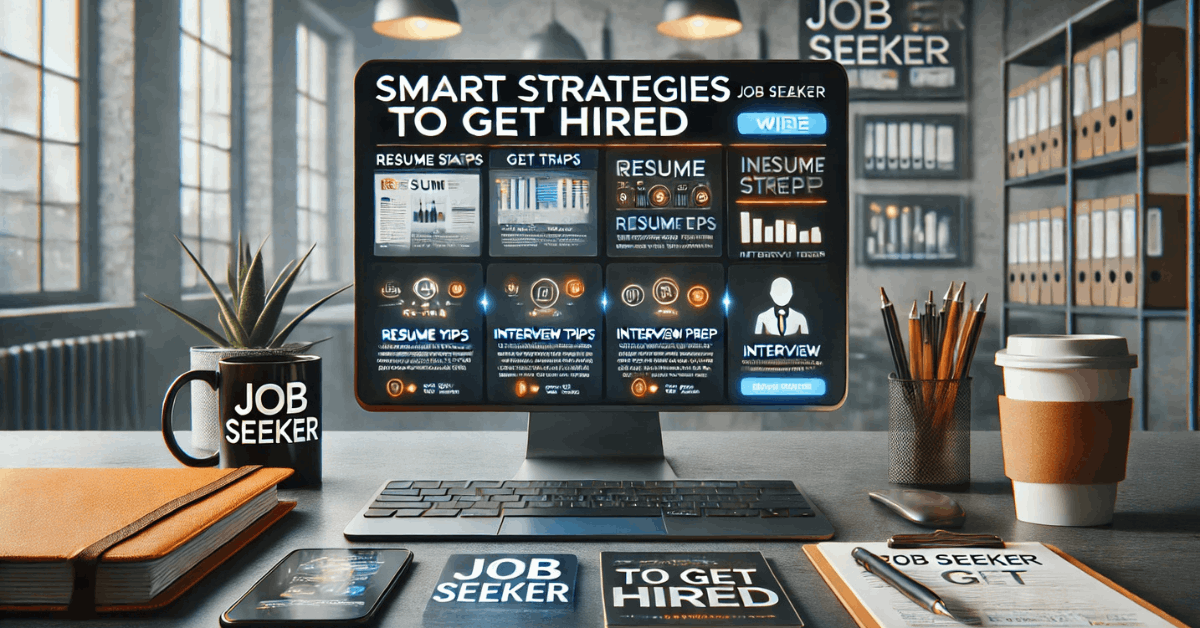How to Get Hired takes more than just applying online and waiting. You need to be intentional and strategic. Employers notice candidates who prepare and align themselves with job expectations.
This guide provides 10 practical strategies, along with supporting tips, to help you improve your chances of getting hired quickly.

10 Smart Methods That Work to Get Hired
These ten strategies are the foundation of a successful job search. Each one targets a key step in the hiring process to help you stand out from the crowd.
1. Know What Employers Want
Hiring managers look for more than just qualifications. They want candidates who align with their needs and values.
Study job listings in your field. Pay attention to repeated keywords, skill sets, and tools mentioned.
Employers value problem-solvers and team players with strong technical and soft skills. Make sure your resume and application speak directly to these requirements.
2. Customize Your Resume and Cover Letter
Generic resumes won’t get noticed. Every application should be custom-built for the job. Hiring teams can tell when you put in the effort. A targeted resume shows you understand the role.
Use keywords from the job post in your resume and cover letter. Highlight measurable results, not just responsibilities.
Focus on what you achieved and how it helped your previous employer. Keep the format clean and easy to scan.
3. Optimize Your LinkedIn Profile
LinkedIn is a vital tool for job seekers today. Recruiters often search here before contacting you. An optimized profile increases your visibility. It shows you’re serious about your career.
Use a professional photo and a simple, clear headline. Write a summary that includes your skills, values, and accomplishments.
Add work experience with bullet points that include metrics. Ask for recommendations to boost credibility. Visit LinkedIn
4. Use Online Job Boards Strategically
Job boards are useful, but you must use them wisely. Random applications rarely lead to interviews. Strategy helps you save time and get results. Focus on quality over quantity.
Use filters to narrow job matches. Apply within 48 hours of the listing going live. Set alerts so you’re the first to act.
Track your applications to avoid overlap or missed follow-ups. Platforms like Indeed, Glassdoor, and LinkedIn Jobs are reliable options.
5. Network Like a Pro
Networking is not just for extroverts. It’s one of the most effective ways to get hired. People are more likely to recommend someone they know. So, you need to put yourself out there.
Start with friends, alumni, and former colleagues. Attend webinars and job fairs in your industry. Join LinkedIn groups and engage in the discussions. Ask for advice or insight, not just job leads.
6. Practice Interviewing Often
Even the best candidates need to practice. Interviews are where many people lose momentum. Preparation makes you confident and clear. A strong interview can set you apart.
Practice common questions like “Tell me about yourself” or “Why should we hire you?” Use the STAR method to structure answers.
Rehearse out loud or with a friend. Review your past roles and how they relate to the new job. Platforms like Pramp are useful for mock interviews.
7. Build In-Demand Skills
Skills give you a competitive edge. Industries evolve, and employers want people who keep up. Online courses help you stay relevant. It shows initiative and self-discipline.
Identify top skills from job descriptions in your field. Use free or paid courses from Coursera, LinkedIn Learning, or Google Career Certificates.
Complete real projects or certifications. List them clearly on your resume and LinkedIn profile.
8. Apply Consistently, Not Randomly
Random job applications won’t get results. Consistency builds momentum. Focus your efforts on relevant roles. Track progress and adjust as needed.
Apply daily or on set days of the week. Keep a spreadsheet with job titles, companies, deadlines, and follow-ups.
Don’t stop applying after getting one interview. Stay organized and treat your job search like a project.
9. Follow Up After Interviews
Following up shows professionalism. It keeps you on the recruiter’s radar. Many candidates skip this step and miss the chance to stand out. A short message goes a long way.
Send a thank-you email within 24 hours. Mention something discussed in the interview. Reconfirm your interest in the role. Keep it polite, specific, and to the point.
10. Stay Resilient and Adapt
Job hunting is stressful. You’ll face rejection. What matters is how you respond. Adapt and move forward.
Learn from interviews that didn’t go well. Adjust your resume or responses based on feedback. Stay consistent and refine your approach. Believe that with effort, the right job will come.
Common Mistakes That Delay Hiring
Many job seekers fail because of small, avoidable mistakes. Knowing these in advance helps you stay prepared and efficient.

- Always read the full job description to make sure you’re qualified and to avoid wasting time on mismatches.
- Avoid sending the same cover letter to every employer. Customize each one to the company and role.
- Update your contact details on your resume, LinkedIn, and other platforms to avoid missed communication.
- Clean up your digital footprint by ensuring your social media profiles are professional or private.
What Hiring Managers Notice Fast?
First impressions are everything. Recruiters scan resumes quickly. You need to grab their attention in seconds. Structure and clarity help.
Use clean formatting and bold headings. Match your job title to the one on the posting. Quantify your past results with data. Keep it simple and results-driven.
Remote and Freelance Job Options
Remote work continues to grow. Many companies hire globally. Freelancing is also a viable path. You need to know where to look.
Check platforms like Remote.co, FlexJobs, and Upwork. Highlight your remote experience and communication skills.
Be clear about your availability. Tailor your application for contract roles.
Tools That Help Job Seekers
The right tools can save time and improve your chances. Use them to refine your applications and build your presence. Many are free or affordable.
They help you stay organized and sharp. Jobscan helps match your resume to a posting.
Grammarly checks your writing tone and errors. Pramp lets you practice interviews live. Behance is great for creative portfolios.
Final Insights: Stay Smart and Focused
You don’t need luck to get hired—you need a plan. These 10 strategies will give you the structure and direction you need.
Be consistent, learn from every step, and refine your approach. With focus and effort, you’ll get the job you deserve.











